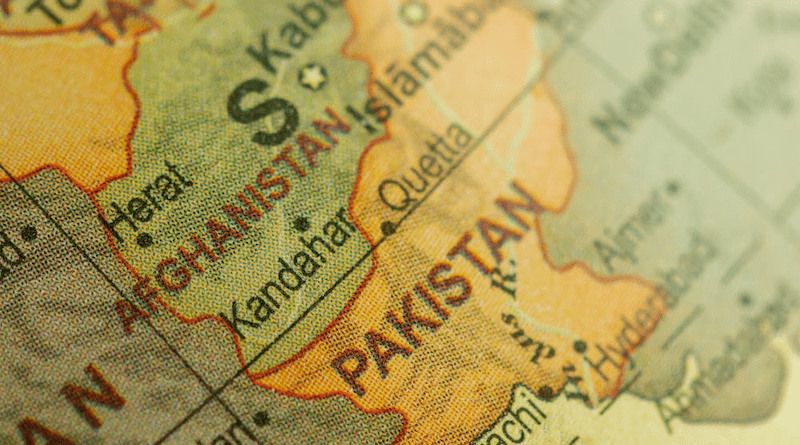Pakistan’s Commitment To Sustainable Development Goal 16 – OpEd
By Khalid Iqbal
he 2030 Agenda for Sustainable Development represents a global commitment to address humanity’s most pressing challenges. Comprising 17 interconnected Sustainable Development Goals (SDGs), this framework aims to eradicate poverty, ensure access to healthcare and education, promote gender equality, address climate change, and foster peace, justice, and strong institutions, among other vital objectives. Pakistan, in alignment with the global community, has embraced the SDGs as its National Development Agenda since 2016, recognizing their relevance to the country’s multifaceted socio-economic and environmental challenges.
Pakistan’s alignment with the SDGs underscores its dedication to addressing these issues comprehensively. By adopting the SDGs as its National Development Agenda, Pakistan seeks to tackle poverty, promote inclusive growth, improve education and healthcare, address climate change, and foster peace, justice, and strong institutions. The SDGs offer a roadmap for Pakistan’s sustainable development, guiding policy and decision-making processes toward building a more prosperous and equitable society.
SDG 16, in particular, stands as a beacon of hope for societies striving to achieve justice and strong institutions. This goal is committed to reducing violence, addressing conflicts, strengthening the rule of law, and protecting human rights. For Pakistan, a nation grappling with multifaceted challenges, SDG 16 is paramount. It represents not only a national imperative but also a pathway to sustainable development.
Within the framework of SDG 16, Pakistan has set various targets to measure its progress. These targets encompass ending abuse against children and violence-related deaths, promoting the rule of law, addressing illicit financial flows, arms trafficking, and organized crime, developing effective and transparent institutions, ensuring inclusive decision-making, providing legal identity for all, and building policies that support sustainable development. These targets are essential components of building a society that upholds the principles of fairness, equality, and respect for human rights.
However, as with any ambitious endeavor, Pakistan faces a set of challenges on its journey to achieving SDG 16. Ongoing political instability can disrupt the long-term commitment to this goal, affecting policy continuity. Persistent security challenges, such as terrorism, pose obstacles to peacebuilding and regional stability efforts. Addressing corruption and strengthening governance is essential for the success of SDG 16. Bridging socio-economic disparities and promoting gender equality remain challenges in ensuring equal access to justice. Strengthening institutional capacity, particularly in the justice sector, is vital for successful implementation. Limited resources pose challenges in adequately investing in peacebuilding, justice systems, and institutional strengthening. Overcoming cultural and traditional barriers to participation in decision-making and accessing justice is another significant challenge. Ensuring the availability of accurate data for monitoring progress toward SDG 16 is crucial.
Despite these challenges, Pakistan’s commitment to achieving SDG 16 has yielded significant successes. The country has implemented various initiatives and reforms that serve as valuable models for other developing nations. The Punjab Access to Justice Program provides free legal aid, advice, and representation to marginalized communities, ensuring their access to justice. Khyber Pakhtunkhwa Police Reforms depoliticized the police force, introduced merit-based recruitment and technology-driven solutions, enhancing accountability and efficiency in law enforcement. The Benazir Income Support Programme targets poverty alleviation through cash transfers, empowering vulnerable households and promoting inclusive development.
Additionally, Pakistan’s efforts to digitalize the justice system with e-filing, online case management, and digitized court records streamline processes, improve access to justice, and strengthen the rule of law. Looking ahead, Pakistan must address its current systems’ challenges to advance further toward achieving SDG 16. Overcoming ongoing political instability, addressing security concerns, combating corruption, promoting inclusivity, and investing in capacity building are key areas that Pakistan needs to focus on to overcome obstacles and advance SDG 16.
In conclusion, Pakistan’s commitment to achieving Sustainable Development Goal 16, focusing on Peace, Justice, and Strong Institutions, represents a pivotal step in the country’s path toward sustainable development. While challenges persist, these endeavors underscore the significance of concerted actions and collaboration to create a more just and sustainable world. Ultimately, SDG 16 emphasizes that without peace and stability, progress in other development areas becomes increasingly challenging to achieve. Pakistan’s dedication to this goal serves as a testament to its commitment to building a brighter future for its citizens and contributing to global sustainable development.

